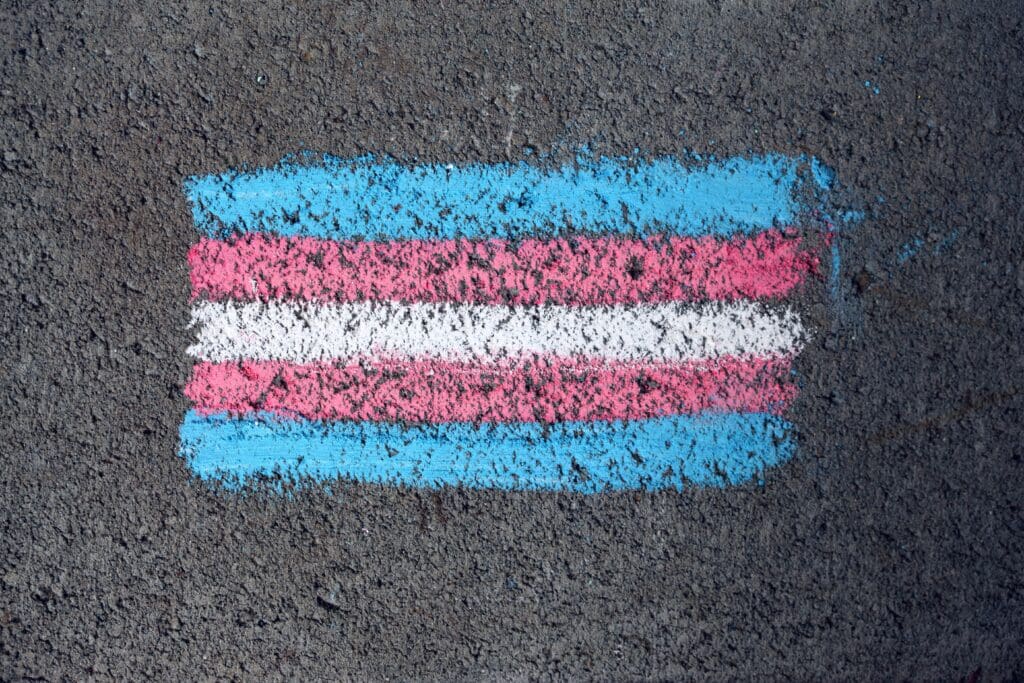
To read this blog in Spanish, click here.
by Ruth Rosas and Kait Spielmaker
When we think about walkability, we often focus on physical surroundings – the streets, public spaces, and amenities that make walking and rolling safe and accessible. However, for those who feel exposed or unsafe due to intolerance, harassment, or threats of violence, walkability is denied. In this blog series (read our introduction here) we explore the ways social, cultural, economic, and political factors affect the right of all people to move freely and safely in their communities.
Mobility justice is a framework that examines and seeks to address historical and ongoing transportation and infrastructure inequities that disproportionately affect marginalized communities. We support a vision for a world rooted in social justice where people feel safe existing on the streets and can build lives experiencing the full joy of movement and community regardless of their identities. We believe this is essential to promote the health, well-being, and success of our communities.
Making the Connection
Transgender rights and mobility justice are interconnected. To understand how they intersect, it’s important to examine the challenges faced by transgender individuals within the broader concept of mobility justice.
Transgender individuals face significant barriers, discrimination, and even violence when it comes to accessing public spaces, services, and opportunities. These challenges manifest in various forms, including limited access to healthcare, employment discrimination, harassment, and social exclusion. As a result, many transgender individuals experience not only reduced mobility and restricted access to essential resources and opportunities, but also threats to their physical, mental, and emotional safety.
By recognizing and addressing the interconnectedness of transgender rights and mobility justice, we can work towards a more equitable and inclusive future where all transgender individuals have equal opportunities to move freely, access essential resources, and fully participate in society.
Why Build Inclusive Communities
Since January, state and federal legislators have proposed more than 450 anti-LGBTQ+ bills that restrict health care, ban LGBTQ+ inclusive curricula in schools, exclude trans youth from athletics, and endanger and actively harm trans people. Legislation and policy such as this restrict trans people from living their lives and targets and marginalizes them even further. This contributes to dehumanization and discrimination that is supported by the government, which enables harassment and violence towards trans people. Fear and lack of safety create hostile environments that do not enable trans people to freely move around their communities.
Advocating for safe streets and places means building inclusive communities for trans people. Communities where everyone feels valued, respected and included are crucial elements to walkable and accessible communities. When certain members of our communities are marginalized and discriminated against, we must work together to advocate and support inclusive legislation that protects the human rights and well-being of marginalized groups.
Freedom to Move for Trans People
America Walks launched the Freedom to Move campaign in direct response to the “arrested mobility” of Black and Brown people by public and private policing of their movement. We are working to change jaywalking laws, which do little for safety and are most often used against young Black men as a pretext.
Trans people also face injustices on streets, sidewalks and in public spaces in plain sight. Trans people are much more vulnerable to discrimination, harassment and are four times more likely than cisgender people to be victims of violent crime. We support the Trans Bill of Rights in Congress, which amends the Civil Rights Act to include gender identity. Affirming the rights of trans individuals to the equal protection of our law builds on the framework of the Civil Rights of 1964, which prohibits discrimination on the basis of race, color, religion, sex or national origin.
Discrimination, harassment, and violence against trans people have long lasting impacts on individuals and communities. Acts of violence can erode trust between individuals, in communities and in institutions. This leads to the erasure of collective security and the shared responsibility of safety and respect for each other.
We recognize that we are not leaders in the trans rights movement, but our central job of creating safe streets and places for all people remains. We will continue to build meaningful relationships with marginalized communities and stand in solidarity with active engagement. The only way to build and strengthen walkable and accessible communities is by making sure that every single person feels as they are welcomed and safe on all streets, sidewalks and public spaces.
Additional Resources
For those seeking resources and information on trans rights, the following organizations, along with many others, are dedicated to supporting transgender individuals while advocating for a more inclusive and equitable society. Following their work providing access to resources and opportunities to stay informed:
- Transgender Legal Defense & Education Fund
- National Center for Transgender Equality
- GLAAD
- National LGBTQ Task Force
- National Queer and Trans Therapists of Color Network
- The Trevor Project
- Gender Spectrum
In case you missed the previous piece in this series, you can find it here.